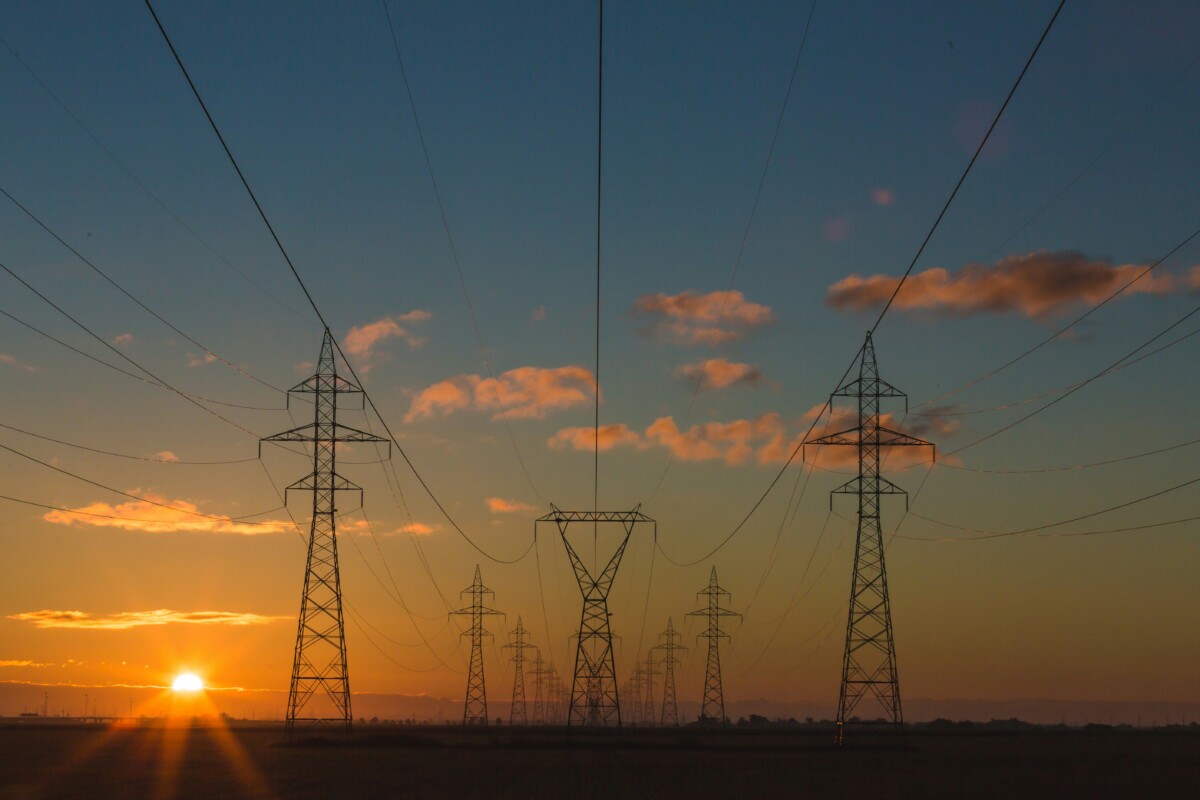Listen to the full podcast episode on YouTube, Spotify, and Apple Podcasts.
In today’s rapidly evolving energy landscape, where sustainability is no longer just a buzzword but a crucial aspect of global business strategy, Andrew Nind offers a unique and deeply informed perspective. With over 30 years of experience in the British and European energy sectors, Andrew has seen firsthand how the industry has shifted from traditional fossil fuels to embracing renewable energy. However, his insights go far beyond the technicalities of energy production; they delve into the very culture of business and its impact on the environment and society.
The Evolution of the Energy Sector
Andrew’s journey in the energy sector began somewhat serendipitously after he graduated from Cambridge University with a mathematics degree in the late 1980s. He entered the energy sector during a time when job opportunities were plentiful for graduates, and he soon found himself working as a commercial analyst for regional electricity companies. This early experience in the industry shaped his understanding of the energy market and set the stage for his later work in energy consulting.
For much of his career, Andrew has been involved in market advisory consulting, helping to analyse and guide the development of power projects across the UK and Europe. He has worked on a wide range of projects, from the early days of the UK’s dash for gas in the 1990s to the more recent push towards renewable energy sources like wind and solar. Reflecting on this journey, Andrew notes, “In the 1990s, it was mainly about gas. There was a big revolution in this country – a dash for gas. Gas had become very cheap, and we were essentially replacing coal-fired power stations with gas-fired power stations.”
However, as the energy sector has evolved, so too has Andrew’s focus. In recent years, he has become increasingly concerned with the ethical implications of the energy transition, particularly the phenomenon of greenwashing – a practice where companies exaggerate or misrepresent their environmental efforts to appear more sustainable than they actually are.
The Challenge of Greenwashing
Greenwashing is a significant issue in the energy sector, and Andrew is particularly concerned about its impact on both consumers and the industry’s overall progress towards sustainability. He shares an anecdote that illustrates the absurdity of some greenwashing practices: “A friend of mine signed up for a green energy tariff and was told by her supplier that she was a ‘climate champion.’ The supplier’s logic was that by consuming more electricity, she would be saving the planet. It’s an absurd example of how greenwashing can distort reality and hinder genuine progress.”
This example highlights a broader issue within the energy sector, where companies often take undue credit for renewable projects while downplaying the role of government subsidies and other support mechanisms that are critical to these projects’ success. Andrew argues that this not only misleads consumers but also allows companies to meet environmental targets without making the necessary efforts to reduce energy consumption or invest in new green technologies.
He stresses the need for a more honest and transparent approach to measuring companies’ contributions to sustainability.
“We need to develop a culture where companies are genuinely committed to reducing their environmental impact, rather than just paying lip service to sustainability,”
Andrew says. This call for transparency and integrity is a recurring theme in his work and a crucial aspect of his vision for the future of the energy sector.

Great British Energy: Genuine Progress or Political ‘Low Hanging Fruit’?
One of the most significant developments in the UK’s energy policy is the Labour government’s plan to establish Great British Energy, a state-owned entity aimed at accelerating the country’s green energy transition. While this initiative has been hailed by some as a bold step towards sustainability, Andrew remains cautiously optimistic.
He acknowledges that the energy sector is already making significant progress towards decarbonisation, with nearly half of the UK’s electricity generated from renewable sources in 2023. However, he questions whether the government’s intervention is necessary at this stage or if it might be more about political expediency – what he refers to as “low hanging fruit.”
“My concern is that the industry is already making good progress in terms of becoming greener. It’s not completely obvious that government stepping in is going to make the transition happen faster than it’s already happening,”
Andrew explains. He also raises concerns about whether the focus on Great British Energy might divert attention from more pressing issues, such as decarbonising the heating and transport sectors, which are politically more challenging but crucial for achieving net-zero emissions.
Despite these reservations, Andrew sees the potential for Great British Energy to play a positive role, particularly if it helps to galvanise public support for renewable energy projects. However, he emphasises that the real challenge lies in addressing the sectors that are more difficult to decarbonise and ensuring that any progress made is genuinely sustainable.
A Call for Cultural Change in Business
Beyond the technical and policy aspects of the energy sector, Andrew is deeply concerned with the broader culture of business and its impact on sustainability. He argues that companies need to move beyond a narrow focus on profit and embrace a sense of responsibility for the public good. Drawing on the legacy of Adam Smith, Andrew advocates for a cultural shift where businesses prioritise ethical practices and social responsibility alongside their financial goals.
“In the Anglo-Saxon world, we’ve developed this culture of sticking to what we do best—making money—and not worrying too much about the broader impact,” Andrew observes.
“But if we can change that culture and encourage companies to take collective responsibility for the state of the world, we can make real progress.”
Andrew points to examples of companies that are already beginning to embrace this mindset, such as those that stress kindness in business or devote significant resources to pro bono work. He believes that this trend can be expanded and that businesses can play a crucial role in addressing global challenges like climate change and social inequality.
The Path Forward
As he continues his work as a consultant and advocate for sustainability, Andrew remains optimistic about the future of the energy sector. He sees the potential for genuine progress, not only in terms of technological advancements but also in the way companies approach their role in society. By fostering a culture of transparency, integrity, and public responsibility, Andrew believes that businesses can make a significant contribution to building a more sustainable world.
“The key is to develop a culture where companies don’t just see themselves as profit-making entities, but as part of a larger community with a responsibility to the public good,” he says. “It’s not always easy, but it’s essential if we want to achieve a truly sustainable future.”
Andrew Nind’s insights offer a compelling vision for the future of the energy sector – one that balances the need for economic growth with a deep commitment to ethical practices and environmental stewardship. As the world continues to grapple with the challenges of climate change, his call for a cultural shift in business is more relevant than ever.
Discover The Mark of Editorial Integrity
👉 Learn how truMRK helps organisations strengthen the credibility of their sustainability reports.
Want to be a guest on our show?
Contact Us.
The Responsible Edge Podcast
Queensgate House
48 Queen Street
Exeter
Devon
EX4 3SR
Recognition.
Subscribe Now.
Subscribe below to receive a monthly email featuring all new episodes of The Responsible Edge Podcast.
© 2025. The Responsible Edge Podcast. All rights reserved.
The Responsible Edge Podcast® is a registered trademark of truMRK Ltd.
Created by truMRK
© 2025. The Responsible Edge Podcast


